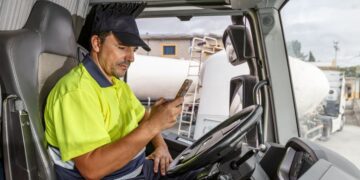Living in London: It is hard to know what to do, or what to expect, when you first move here on your working visa, ancestral visa or European passport. How do you find a place to live? How do you find work? How do you make friends?
If you are an Australian or New Zealander committing to a year or two in the UK, it usually means applying for a Tier 5 working visa, which will enable you to stay in the country for up to two years. Unless you have ancestry or a European passport, this might be the only chance you have to live in London Town and travel the European continent at will.
You will often find many Aussies and Kiwis making the most of their time in London by living cheaply, working hard and travelling often. The trick is to weigh up the pros and cons, work out what you need to tick off your bucket list and sometimes sacrifice a night out at one of the city’s hip clubs for a flight to Amsterdam.
Some will sacrifice more than others
Hubby and I decided to work fulltime, Monday to Friday, pay a little more in rent for a big room within zone 2 (that means closer to town on the Tube), and we sometimes treat ourselves to a nice night in a 3 star hotel or a better flight when we travel. But I am always in awe of those that have the whole travel/work thing figured out and do what they have to do to get where they want to go.
A friend of mine visited between 30 and 40 countries during her two years in London by travelling cheap and renting out her room when she was not using it. A Kiwi couple that we met on a tour in Egypt live in a zone 4 house in London with 19 other people, trading privacy and commute time for more travelling money and a ready made social scene.
There is no right or wrong way to enjoy your grown up gap year/s in London. It is a choice completely up to you and your budget.
But, to get you started, here are a few tips from me; some wisdom from an Aussie expat coming to the end of her two year stint in London.
WHAT TO DO WHEN YOU FIRST ARRIVE IN LONDON TO LIVE AND WORK
Find somewhere to live/doss
This is tricky since you don’t know where you want to be living, or because you might want to travel a little more before signing a lease.
If it is just you and the backpack/suitcase you rocked up with, take advantage of the situation while you don’t have much to lug around and sample a couple of areas to find out where you want to live. There are plenty of rooms, couches and beds available for a few weeks or months, especially over summer or Christmas. “Dossing” (temporary or cheap lodging in a large house, usually where a mate lives) is typical activity for many large sharehouses where residents are regular travellers and housemate turnover is high. There are many of these in London and you could pay as little as £50 a week, including bills, for a couch or bed.
Once you have found a bed/room/flat/house/cupboard you might need to purchase furniture, bedding, pillows, curtains, and a duvet (aka doona – see below). There are a few Ikea’s located around London, but it might be quicker and more convenient to order your items online to collect from Argos, Homebase, Marks & Spencer, Tesco or Sainsbury’s. Argos is a catalogue merchant and the largest general-goods retailer in the UK with collection points are located everywhere in London.
Tip — British duvets (known as a doona or quilt in other parts of the world) are sold in different weights called “tog”. As a general guide 4.5 tog is a light weight duvet for summer, 7.5 tog is usually for spring/autumn while 13.5/15 tog is extra-warm for the winter months.
Get your UK mobile phone, pronto!
You want to get off your Aussie mobile number/chip asap – using it in the UK will be horrendously expensive.
Your Aussie handset may or may not work on a UK sim card, depending if it has been locked by your Aussie provider or not. You can get it unlocked but be warned that it may damage the phone and kill it’s warranty.
Getting a new handset that does work in the UK need not be too expensive – check out the options at the phone shops found on every high street. Another option is to buy a second-hand one off a site like eBay or even off someone in your new share house who is leaving the UK.
Being new to the country, it is most likely you will not be able to get a monthly mobile phone plan for a while, as you don’t have a credit record in Britain. Fear not though; there are loads of pay-as-you-go and top-up pre-paid plans that are perfectly suitable – some companies even offer a cheap deal on a handset when you sign up.
Tip: Many places in London, like restaurants and pubs, have free Wi-Fi, including 260 London Underground (Tube) stations and 70 Overground (regular trains) which are free if you are a with the main providers – see a list here
Note: Numbers that begin with 07 are mobile numbers. Numbers that begin with 01, 02 and 03 are UK landlines. Calls to 0800 and 0808 numbers are free from landlines only. Calls to 0845 numbers are charged at higher rates.
To contact Emergency Services dial 999.
Open a Bank Account
You will need a UK current account to transfer your funds from overseas and to deposit any income you earn.
A current account is the account you can use for day-to-day banking transactions, standing orders, direct debits and online banking. In the UK, most current accounts come with a debit card and a cheque book. However, some bank accounts will offer travel insurance, contents insurance, or an overdraft for an extra monthly fee. There are usually no monthly fees on a current account, but they also offer no, or little, interest earnings.
The four big banks are Barclays, HSBC, Lloyds Banking Group and RBS (Royal Bank of Scotland). Other major banks and building societies include Halifax, Santander, Coventry and Nationwide.
Even if you open a bank account online you will have to prove your identity in store. Sometimes it is easier just to visit each of the major banks on your nearest high street to find out what they offer and if they can open you a bank account on the same day. Sometimes you will need to book an appointment to see someone.
Barclays have been known to be happy to open a bank account with an Aussie passport, as long as you have a date stamp to prove you have arrived in the country recently. They will send a letter and new debit cards to the address you nominate, but you might have to take the letter back in to the store to prove your address. Other banks and building societies might also require your working permit or a utility bill with your address on it.
Always ask for the IBAN and SWIFT codes as both are required on all international transfers and payments. The International Bank Account Number (IBAN) is a 15 or 16 digit number that will include your account number. The SWIFT code (SWIFTBIC) is a bank identifier code.
Apply for a NIN (National Insurance Number)
Your NIN is different to your NHS Number (see below). Your NIN is used for tax, benefits and pensions; a bit like a Tax File Number in Australia. You must have the right to work or study in the UK to get a National Insurance Number.
Get more details on applying for a NIN here
Register for a Doctor and NHS
The National Health Service, referred to as the NHS, is the (almost) universal health care system of the UK. It works a bit like Medicare at home, but is even more accessible and largely free although waits can be just as long.
After you find a place to reside you should register with a local GP surgery. You have to register with a GP surgery that covers the area in which you live. Sometimes you will have to ring around to several surgeries to find one that covers the area in which you live and is accepting new patients. Use the NHS website to find the best rated surgeries in your area.
Many GP surgeries will ask you to provide proof of identity and to complete a registration form. You might also be asked to make an appointment for a health check. These are usually done by the practice nurse, who will ask you about your medical history, measure your blood pressure and they might ask you to pee in a cup.
Hint –Don’t wait until you’re sick to register for a GP as there could be delays.
If you need to see a doctor or nurse and you are not registered, there are plenty of walk-in clinics around London and at some hospitals. Expect a lengthy wait though.
Getting your NHS Number
A NHS Number is a unique 10-digit number given to everyone registered with the NHS in England and Wales. Your NHS Number will be sent to you when you register at a GP practice. You will receive it on a medical card.
If you move or change your name you can simply take your NHS number with you to your new GP practice. Your NHS Number simply helps the NHS keep your health records correctly, safely and easily.
NHS website: https://www.nhs.uk/
Find a Job
Be patient. In the beginning you might find it hard to find something suitable but there are many companies that you can work for to earn a little bit of cash to get by. Some have found that companies are more likely to give you a chance if you have already had a job in London.
If things are taking time to land a job in your vocation, it’s always worth checking out basic hospitality, catering and service companies. They tend to have a high turnover and are always looking for friendly, hardworking staff.
You can also try your hand at administration and office work with several temping agencies such as Morgan Spencer and Office Angels.
Register with online CV Libraries and job search engines such as indeed.co.uk, jobsearch.moster.co.uk, jobsite.co.uk, totaljobs.com, and cv-library.co.uk.
Don’t be afraid to ask for help. Sometimes networking and introductions will help you in securing the right work.
Make Friends and Social Sport
Moving to a new city, in a new country, can be daunting and lonely. But London is a huge city with many opportunities to meet new and interesting people.
Join a Facebook page catering to expats in London. Some organise monthly drinks and wall posts about houseshares, sporting teams and (sometimes) available jobs. Like it or not, you will probably become friends with fellow Aussies… but they are an excellent support group and probably share your same interests!
You can also join a sports team (which will help you fight the dreaded Heathrow Injection). South West London Chargers is a rugby league team full of friendly Aussie, Kiwi and British blokes. Social Netball is a well run Wednesday night netball league for all ages and fitness levels in Fulham. In2Touch is a hugely popular social touch rugby gang in London while Try Tag is the British tag rugby cousin of OzTag. Both put an emphasis on mixed teams and social events. There’s also the very competitive AFL London competition which is renowned for its hard hits and even harder partying.
Most of all, enjoy your time in London – it’s the greatest city in the world!
Read more of Jacquie’s experiences as an Aussie expat in the UK:
Growing up is a choice: you don’t have to get married, buy a house and have kids
Is it time to break up with travel? It’s hard to do
Do I belong in the UK more than I belong in Australia?
Don’t make friends with travellers – they’ll only love you and leave you
10 strange ways your life will change when you move to London
Living overseas: Why your best friends now are your fellow expats
Also visit her website www.neverendinghoneymoon.net












